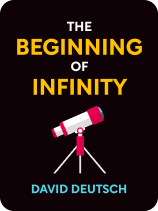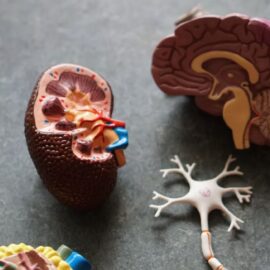

This article is an excerpt from the Shortform book guide to "The Beginning of Infinity" by David Deutsch. Shortform has the world's best summaries and analyses of books you should be reading.
Like this article? Sign up for a free trial here .
Why is all knowledge good knowledge? What happens when truth becomes universal?
In The Beginning of Infinity, theoretical physicist David Deutsch claims that all knowledge is significant. He cites two schools of thought to debate this claim: reductionism and holism.
Read below to learn more about the importance of knowledge and if we’ll ever find universal truth.
All Knowledge Is Good Knowledge
Just as evolution involves competition between various biological adaptations, knowledge creation involves competition between different ideas and ways of thinking. Deutsch discusses two such schools of thought to point out the fatal flaws in each and support his claim that all knowledge is good knowledge:
1) Reductionism means discussing a phenomenon in terms of each individual part that composes it. In other words, it focuses on the smallest and most fundamental levels possible. For example, a strict reductionist might try to understand a rainstorm by calculating the behavior of each individual water molecule (an impossible task).
2) Holism is the opposite. It’s the belief that understanding a small piece of something is useless except in terms of what it can tell you about the whole. For example, a strict holist wouldn’t be interested in learning about one type of tree, except in terms of how that species contributes to the forest it’s in.
Deutsch talks about these two opposite extremes to make the point that knowledge can’t be ranked. In other words, detailed knowledge of the parts isn’t “better” than broad knowledge of the whole, or vice versa. Any type of knowledge is valuable. And—perhaps even more importantly—any type of knowledge could turn out to be the basis for further discoveries.
(Shortform note: Deutsch isn’t arguing against reductionism or holism, only against strict reductionism and holism; both schools of thought provide us with valuable knowledge. For example, one microbiologist wrote that molecular biology (reductionism) and systems biology (holism) depend upon each other and complement one another. We need both types of knowledge to understand complex events, like how an organism grows or how a wound heals.)
When Knowledge Becomes Universal
Deutsch adds that, while knowledge usually grows incrementally (new discoveries building step-by-step on those that came before), sometimes one of those discoveries has far-reaching, even universal, implications.
For example, as scientists studied what matter is made of, breaking it down into smaller and smaller parts, they eventually discovered the elements of the periodic table and the atoms that compose them. We now know that everything—from sand to stars to our own bodies—is made of those atoms in various combinations.
In theory, by finding the right ways to combine the elements of the periodic table, we could create anything we can imagine. Deutsch says we can’t do that yet because we don’t fully understand the universality of the atom. In other words, we know (to some extent) what atoms are and how they behave, but we don’t know why everything is made of atoms, and why certain combinations of atoms create certain things. Think of atoms as the alphabet of the universe: Once we fully understand the rules that gave rise to it, we’ll be able to arrange the letters into any words we want. Once we have that breakthrough, our understanding of atoms and elements will become universal.
The Search for Universal Truth
According to theoretical physicist Stephen Hawking, the search for these pieces of universal knowledge is the ultimate purpose of science. In A Brief History of Time, Hawking explains that science currently has two prevailing theories that explain how the universe works:
- General relativity accurately explains and predicts how large objects behave (in physics terms, “large” generally means “big enough to see with the naked eye”). However, it cannot explain how subatomic particles such as electrons behave.
- Quantum mechanics can somewhat explain the behavior of those subatomic particles, but it operates with completely different rules than general relativity. Furthermore, quantum mechanics is still imprecise, only offering results in terms of probability rather than certain outcomes.
Hawking says that the final goal of physics is to combine these two theories into a Grand Unified Theory that applies to any type of physics problem—what Deutsch would call a piece of “universal knowledge.” However, so far the two theories have proven incompatible, meaning that we need more incremental advancements before we can achieve Hawking’s dream of a universal theory of everything.

———End of Preview———
Like what you just read? Read the rest of the world's best book summary and analysis of David Deutsch's "The Beginning of Infinity" at Shortform .
Here's what you'll find in our full The Beginning of Infinity summary :
- That there is an infinite amount of knowledge in the universe
- Why humanity must never stop learning
- How new knowledge changes civilization for the better





